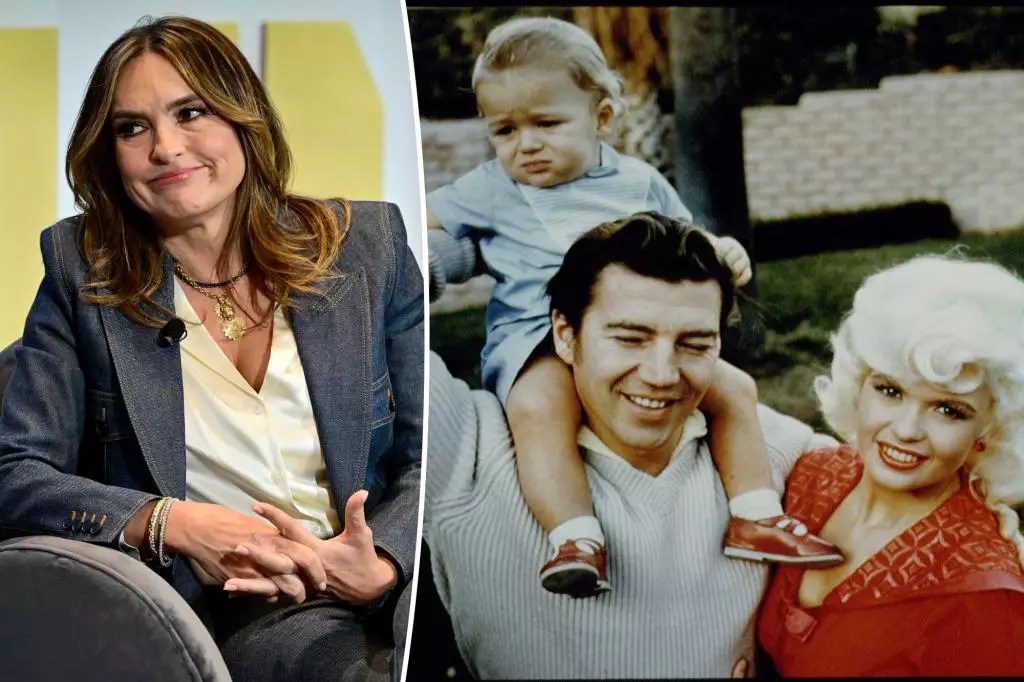Mariska Hargitay, the acclaimed star of “Law & Order: SVU,” opened up about her personal struggles stemming from the loss of her mother, Jayne Mansfield. Mansfield, an iconic actress and Playboy Playmate, tragically passed away in a car accident when Hargitay was just three years old. Attending the Hope for Depression Research Foundation’s 18th Annual HOPE Luncheon Seminar, Hargitay reflected on the profound impact this early loss had on her childhood and family dynamics. She recounted how losing her mother created a house filled with unresolved grief, leaving little room for individual emotional expression.
The absence of effective tools for processing trauma during her formative years meant that each family member dealt with their grief differently, often leading to a fragmented emotional landscape. Hargitay’s comments highlight a crucial aspect of childhood trauma—the lack of support and understanding can complicate the grieving process, making it harder to heal.
During her acceptance speech for the 2024 Hope Award for Depression Advocacy, Hargitay opened up about her ongoing journey of healing and self-discovery. She admitted that it took substantial time and effort before she learned how to confront her past traumas, including experiencing sexual trauma in her thirties. This revelation underscores a critical truth about healing: it is often a gradual and nonlinear process.
Hargitay’s establishment of the Joyful Heart Foundation serves not only as a beacon of hope for survivors of trauma but also as a testament to her commitment to transformative healing. She described the foundation as a response to her experiences, shaping a model of support predicated on empathy—a structure where survivors are treated with the care she wished she had received.
One of the most striking aspects of Hargitay’s narrative is her acknowledgment of the importance of therapy in navigating her traumatic experiences. She expressed deep gratitude for her therapists, who guided her through various healing modalities. Their influence was critical in helping her articulate her feelings and confront her past, providing a safe space to explore her emotional landscape. This aspect of her story reinforces the idea that seeking professional help is foundational in the healing journey, encouraging others to consider this vital step in overcoming their own traumas.
As she articulated the complexities of trauma, Hargitay conveyed an essential message: despite the weight of the past, hope remains a potent companion on the journey towards emotional recovery. Her commitment to this cause not only aids her own healing but also extends a lifeline to those grappling with similar issues.
In a past interview, Hargitay shared her philosophy on living with loss, urging individuals to embrace their pain rather than avoid it. The adage “the only way out is through” resonates deeply within her narrative, illustrating the necessity of confronting grief head-on. It is a poignant reminder that genuine healing often requires vulnerability and a willingness to face difficult emotions.
Hargitay’s reflections on grief reveal a dual journey: acknowledging the pain of loss while simultaneously celebrating the life and legacy of her mother. She describes Mansfield as an “amazing, beautiful, glamorous sex symbol,” characterizing her as a woman ahead of her time with a zest for life that remains an inspiration for Hargitay. This balance—recognizing grief while honoring joyful memories—highlights a pathway many can take towards integrating loss into a fuller, more vibrant existence.
Ultimately, Mariska Hargitay’s journey serves as a powerful narrative of resilience, empowerment, and healing. Through her advocacy and foundation, she has transformed her personal challenges into a broader message of hope for others. By sharing her story, Hargitay not only honors her mother’s legacy but also inspires countless individuals to confront their own pain and seek the support they need.
Her experiences illustrate the truth that while the shadows of the past may linger, it is possible to carve out a brighter path forward—one shaped by understanding, compassion, and unwavering hope. By leaning into the complexities of her emotions, Hargitay embodies a compelling testament to the healing power of community, therapy, and open dialogue surrounding trauma.







Leave a Reply